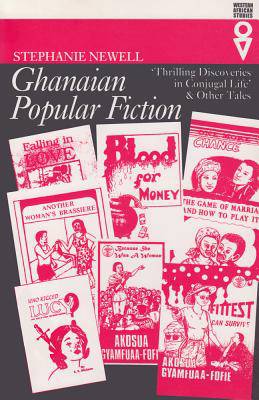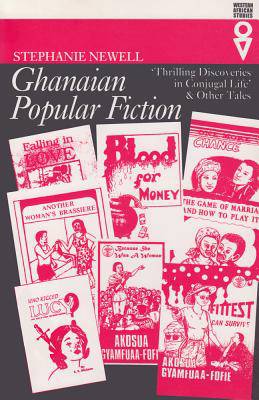
- Retrait gratuit dans votre magasin Club
- 7.000.000 titres dans notre catalogue
- Payer en toute sécurité
- Toujours un magasin près de chez vous
- Retrait gratuit dans votre magasin Club
- 7.000.000 titres dans notre catalogue
- Payer en toute sécurité
- Toujours un magasin près de chez vous
Description
This is a study of the 'unofficial' side of African fiction--the largely undocumented writing, publishing, and reading of pamphlets and paperbacks--which exists outside the grid of mass production.
Stephanie Newell examines the popular fiction of Ghana produced since the 1930s, analyzing the distinctive ways in which narrative forms are borrowed and regenerated by authors and readers.
Familiar narratives from local and international literary sources are endowed with new meanings and relevance, bearing little relation to the metropolitan "centers" in which the sources originated.
The exploration of gender relations is a dominant theme in the novels through which the authors express, mediate, and often resolve commonly held preoccupations about marriage, manhood, and money.
As well as filling a gap in Ghana's literary history, the book explores comparative cross-cultural perspectives.
Spécifications
Parties prenantes
- Auteur(s) :
- Editeur:
Contenu
- Nombre de pages :
- 192
- Langue:
- Anglais
- Collection :
Caractéristiques
- EAN:
- 9780821413678
- Date de parution :
- 31-01-01
- Format:
- Livre relié
- Format numérique:
- Genaaid
- Dimensions :
- 165 mm x 242 mm
- Poids :
- 435 g







